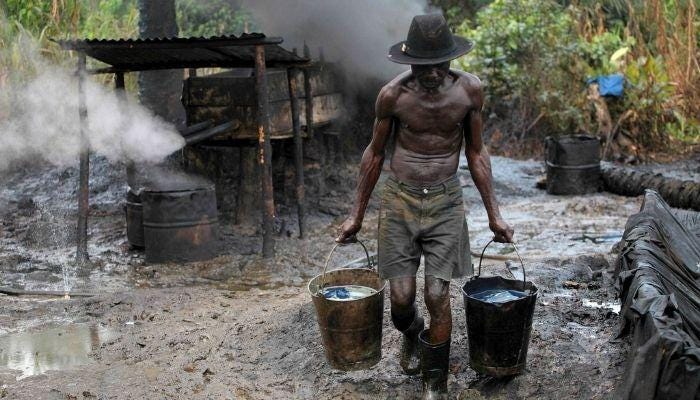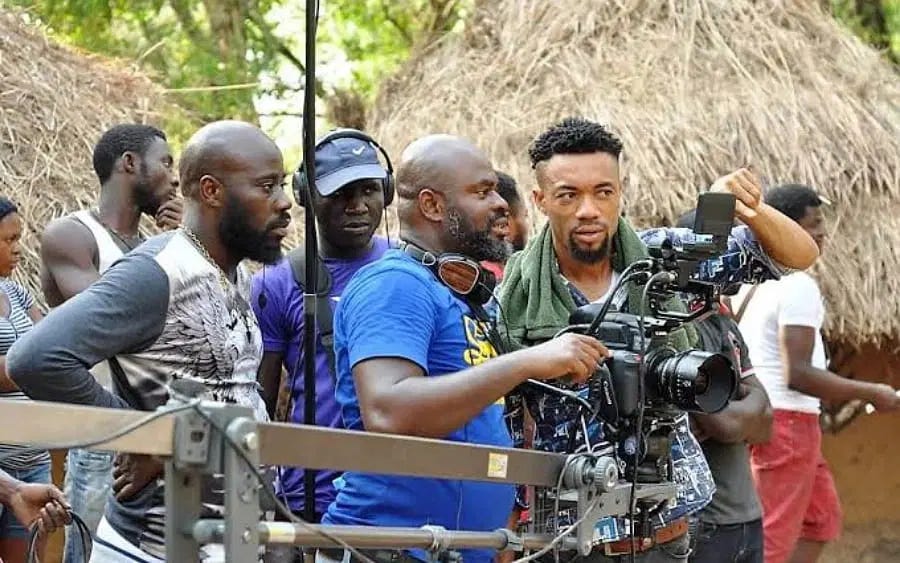From Oil to Afrobeats: Can Nigeria’s Creative Economy Define the Next 65 Years?
Nigeria celebrates 65 years of independence today. The Union Jack came down in 1960, and with it came the promise of self-determination, economic control, and the ability to chart our own future. For much of that journey, one word defined us: oil.
Oil fueled the first wave of national pride. It funded skyscrapers in Lagos, sprawling estates in Abuja, and decades of public budgets. It minted billionaires and built the illusion of limitless wealth. But oil also made Nigeria hostage to global price swings, foreign dependence, and governance failures. It created wealth, but it did not create resilience.
Now, as Nigeria marks 65 years, another narrative is taking shape. No longer confined to the shadows of oil rigs, the creative economy is emerging as a new export engine—one that does not deplete with extraction but multiplies with imagination. Afrobeats, Nollywood, fashion, and digital media are quietly offering the most compelling case that Nigeria’s future lies not in barrels but in creativity.
The question is whether this sector can be the defining engine of Nigeria’s next 65 years—or whether it will remain underleveraged, as oil once was, leaving yet another generation shortchanged.
The Numbers Don’t Lie: Creativity Is Already Paying
Creativity is no longer intangible; it is measurable. And the data shows an industry quietly transforming.
Music royalties: Spotify revealed that royalties paid to Nigerian artists more than doubled between 2023 and 2024, reaching over ₦58 billion ($36–$38M). The number of Nigerian artists earning at least ₦10 million annually has tripled since 2022. Afrobeats has become Nigeria’s leading export after oil, reaching fans in over 180 countries.
Film exports: Nollywood is now one of the top 3 film industries in the world by output. Titles like Blood Vessel topped global charts on Netflix with nearly 9 million hours streamed in a single week. Ijogbon entered Netflix’s global top 10 non-English films, underscoring Nollywood’s international relevance.
Fashion expansion: Nigerian designers are closing deals with luxury houses, appearing on Paris runways, and shaping trends from streetwear to haute couture. Lagos Fashion Week is now on the calendar of global buyers, with collaborations accelerating.
Digital consumption: Nigeria has one of the largest youth populations in the world—70% under 30. This demographic is both creating and consuming at scale, giving the industry a massive home market before export is even considered.
For a country that has struggled to diversify away from oil, these metrics should not be treated as cultural trivia. They are economic signals.
Oil Built the First 65 Years. What Will Build the Next?
Oil built Nigeria’s independence economy. But it centralized power, entrenched corruption, and limited opportunity. Creativity is different. It is not finite. It grows with each new song, each new film, each new design.
Yet creativity is not self-sufficient. Without infrastructure, finance, and protection, talent will plateau. The next 65 years cannot simply be about celebrating global hits. They must be about building a creative economy that is structurally embedded into Nigeria’s GDP, export policy, and national identity.
This means treating creativity as seriously as oil was treated in the 1970s. Not as an afterthought, but as a pillar.
The Paradox of Independence: Free but Dependent
Nigeria is politically independent, but in the creative economy, it remains structurally dependent.
Piracy persists: Nollywood loses billions annually to piracy, with films circulating online before official release. Music is illegally downloaded at scale.
Platforms extract more than they return: Most streaming platforms are foreign-owned. They control pricing, distribution, and algorithms—skimming off margins and owning the data.
Logistics fail the industry: From electricity blackouts that halt shoots to poor venue infrastructure that limits live music, creators are constantly fighting structural barriers.
Policy remains fragmented: Copyright laws exist but enforcement is weak. Taxation models punish rather than incentivize creators. Funding mechanisms are sparse and underdeveloped.
True independence is not just the lowering of flags. It is the ability to own and protect economic engines. In music, film, and fashion, Nigeria remains a renter, not a landlord.
Four Building Blocks for the Next 65 Years
If Nigeria wants to move from cultural buzz to economic powerhouse, it needs to build the scaffolding. Four pillars stand out:
1. Creative Infrastructure as Economic Infrastructure
Studios, venues, broadband, cultural hubs, and logistics networks must be treated like oil refineries and pipelines once were. Without reliable infrastructure, talent remains stunted. Special Creative Economic Zones with tax breaks, state-of-the-art facilities, and integrated logistics could anchor this shift.
2. Ownership and IP Protection
No economy thrives when its products are stolen. Piracy is not just theft—it is GDP leakage. Stronger IP courts, updated copyright laws, and serious enforcement mechanisms are needed to make ownership meaningful. Creators must be able to monetize without fear of exploitation.
3. Financing Creativity
Traditional banks don’t understand intellectual property. Nigeria needs venture capital, blended finance, and creative-focused funds that treat music catalogs, film scripts, and fashion IP as viable collateral. Creative finance must become a legitimate arm of Nigeria’s economic architecture.
4. Local Distribution Channels
Relying solely on global platforms keeps the margins elsewhere. Nigeria needs homegrown platforms—whether streaming services, fashion marketplaces, or digital distribution hubs—that ensure value circulates locally before it travels abroad.
Case Study Lessons: Where Nigeria Can Look
Other nations have built creative economies intentionally.
South Korea invested heavily in K-pop and film, turning culture into an export worth billions annually, while also boosting tourism and national branding.
Jamaica built global identity off reggae, embedding music into its national strategy.
South Africa has leveraged its film rebate program to attract Hollywood productions, strengthening local skills and infrastructure.
Nigeria does not need to copy. But it must learn. Without structure, talent remains a hustle, not an industry.
The Risks Ahead
The danger is not that Nigeria lacks talent. The danger is that, like oil, talent will be extracted by outsiders, refined abroad, and sold back to us at a premium.
Without deliberate investment, Nigeria risks becoming an export enclave—a place where creativity is harvested but not owned. Where artists sign away rights for exposure, and global platforms reap the profit.
If the next 65 years replicate this dependency, Nigeria’s creative renaissance will be just another resource curse.
The Vision of 2090: A Creative Independence Day
Picture this:
In 2090, Lagos is ranked alongside Los Angeles and Seoul as a global entertainment capital.
Nollywood doesn’t just stream on Netflix; it co-owns global platforms.
Nigerian designers run global fashion supply chains, not just walk Paris runways.
Copyright courts in Abuja are feared by pirates the way oil regulators once were by smugglers.
Creativity contributes a double-digit share of GDP, rivaling oil at its peak.
This is not fantasy. The audience exists, the diaspora amplifies it, and the global market is hungry for it. The missing ingredient is intentional policy and investment.
Oil to Afrobeats: The Choice of the Next 65 Years
At 65, Nigeria faces a fork in the road. Oil made us wealthy, but not resilient. Creativity can make us both wealthy and sustainable.
But this will not happen by accident. It will not be secured by trending charts or fashion headlines. It will be secured by ownership, infrastructure, and long-term investment.
If the first 65 years were defined by oil, the next 65 can be defined by Afrobeats, Nollywood, and digital creativity. That is the independence worth striving for—not just political, but economic, cultural, and creative.
Nigeria does not just have the talent. It has the chance to lead the world’s next great creative economy. Whether it will seize that chance is the real test of independence.
A guest post by
A curious mind exploring the crossroads of creativity and insight.





